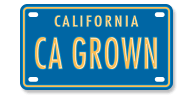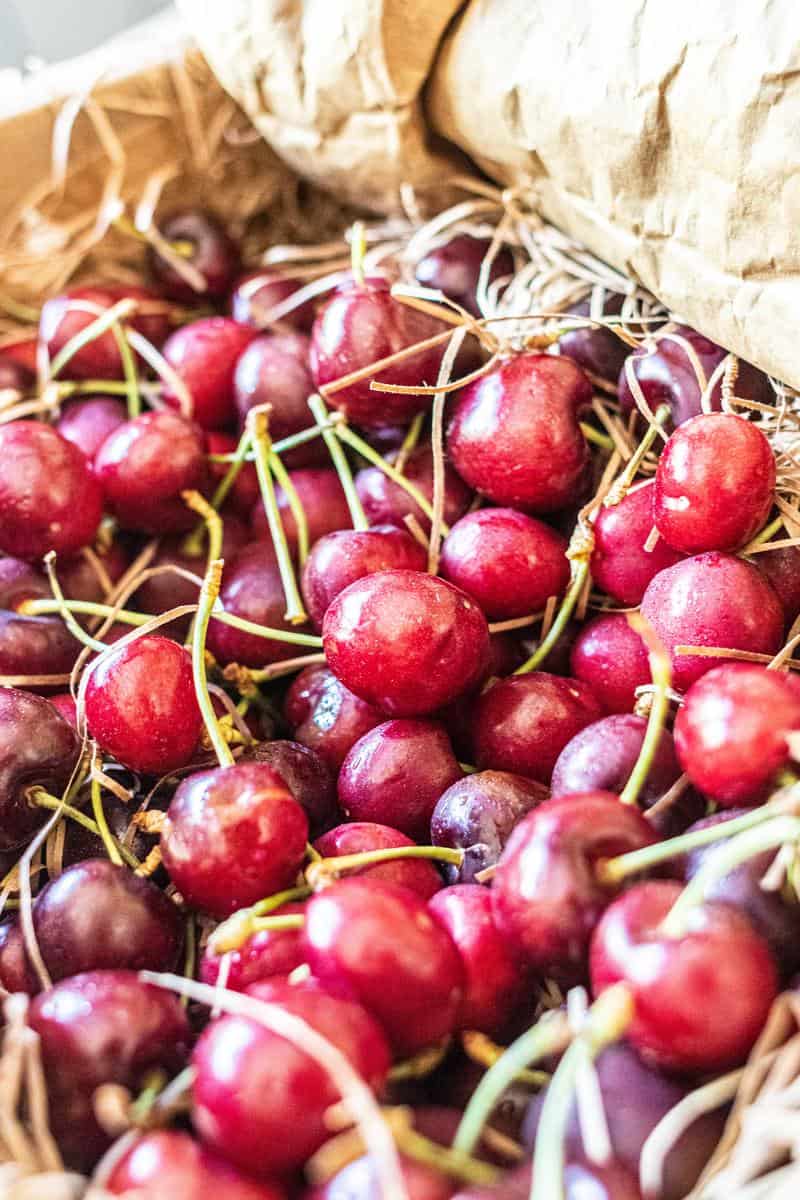How does cherry picking support sustainable farming?
Farming is in James Chinchiolo’s blood – but he knows that’s not the case for many consumers. He’s using community outreach events, like cherry picking, and social media to educate people about where their food comes from, how it’s grown and why it’s so important to support local farmers.
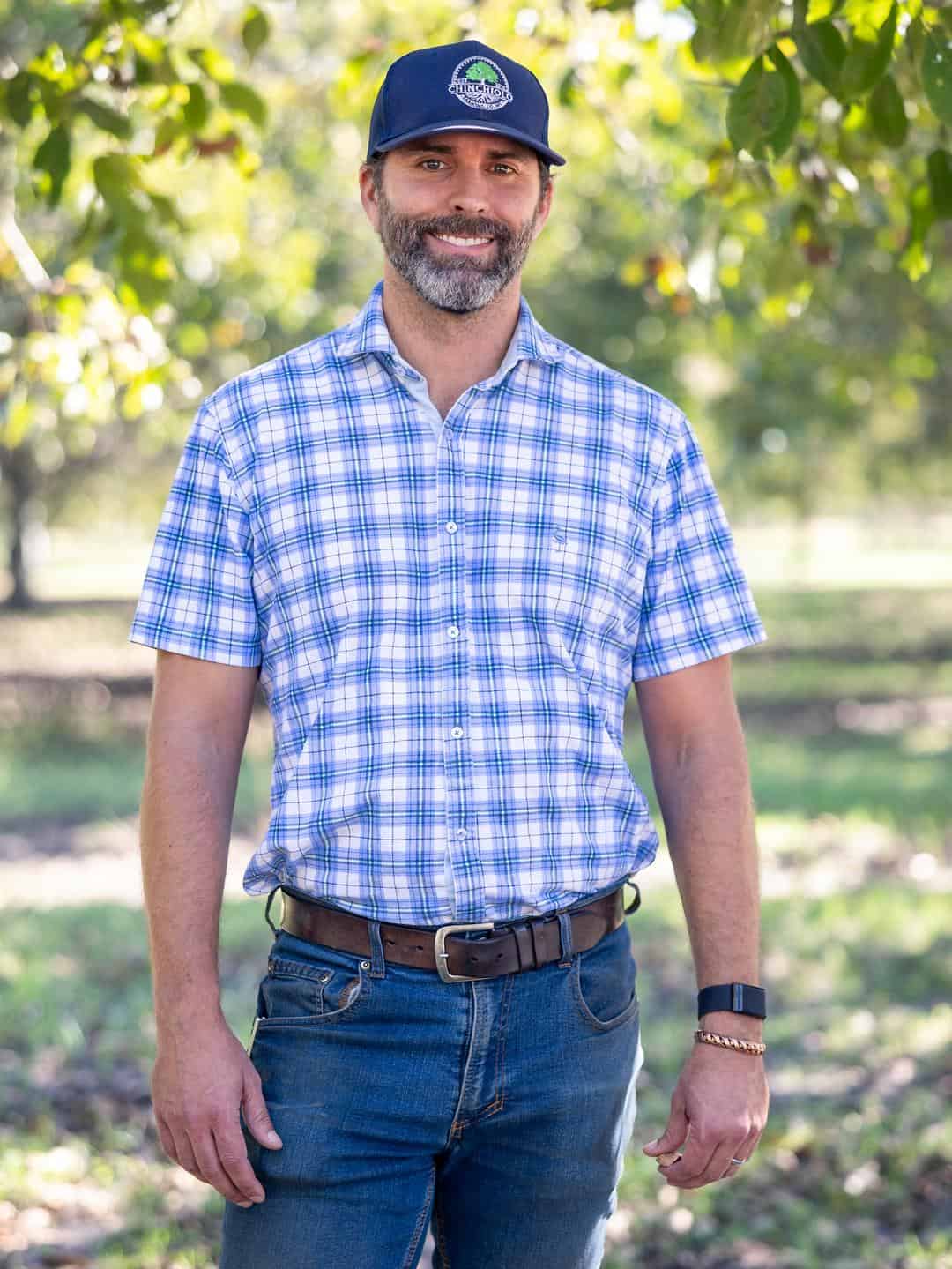
James Chinchiolo grew up in a farm family. As a fourth-generation farmer in the Lodi area, he’s always understood the concept of farm-to-table – how food is grown on a farm, packaged and shipped, and then sold at your local grocer or farmers market. From a young age, James was taught to respect the land and to protect our natural resources. Now, as an adult, he’s made it his mission to share this knowledge to help others understand why sustainable practices matter.
Ag education is the key to success
For our California farmers to survive – and thrive – consumers must understand WHY it’s crucial to seek out California Grown products. James believes that educating folks about how their food is grown and how he and other California farmers prioritize sustainability is his most important marketing tool. He explains that while California Grown products aren’t always the cheapest, they are the safest, healthiest choice – for consumers, our community, and our environment. James explains, “Low-cost food is low cost because the inputs used aren’t necessarily best for the human body. The nuts grown here in California are fantastic – and there’s a higher price associated with them. It takes time, it takes nurturing these trees to produce the quality nuts that we grow here in California. It’s real food.”
We met with James at his Linden walnut orchard to learn more about his family’s operation.
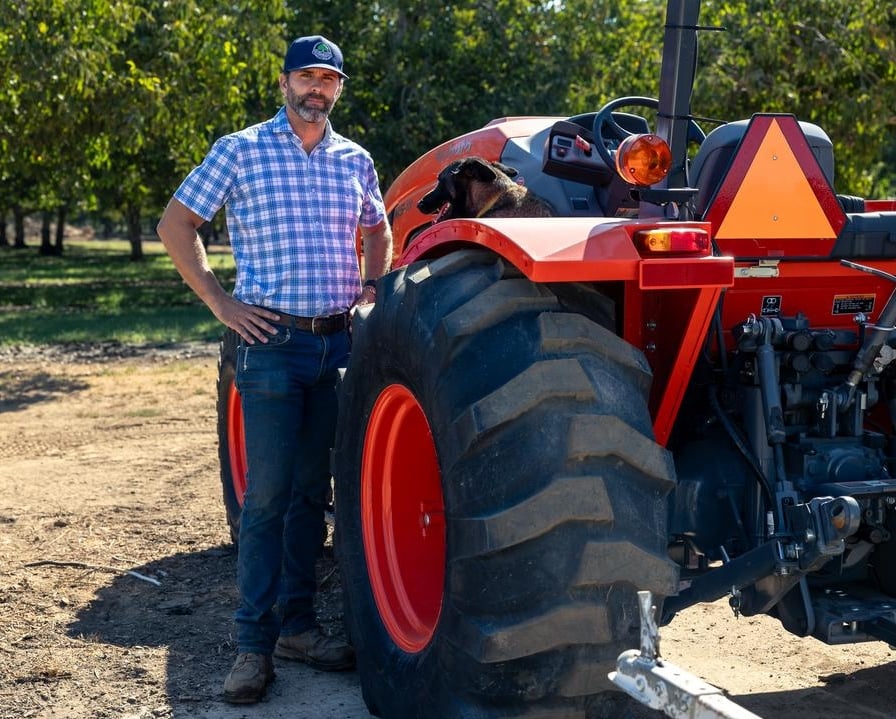
He explains why community events, like cherry picking, farm-to-table dinners, and social media posts are so important: “We’re educating the community on what’s important to us as farmers. That allows us to develop a direct connection with the consumers. We’re often selling our products directly to the consumers that are educated on the benefits of what we’re doing out here in our operation.”
Cherry Picking, Dinners + Reels: A behind the scenes look at agriculture
James uses u-pick events, farm-to-table dinners and even Instagram reels to give people a behind-the-scenes look at his family’s farming operation.
James explains, “We interact with the community in a couple of different ways. One really cool way we bring people into modern agriculture is we open up our cherry orchard. It’s a u-pick operation where we allow people to come in. There are days that we get upwards of 2000 people a day! It’s really cool to see grandparents bring in their grandkids, we get couples in there, we get families. As I hear people talking, they’re talking about the importance of farming and why they need to understand farming better. And they teach that to their kids in real-time. It’s really neat to see. We host Sunset Farm Dinners every year where I speak about our operation. The other way we engage consumers is through social media. It’s a platform with a ton of bandwidth, and we leverage that as much as we can.”
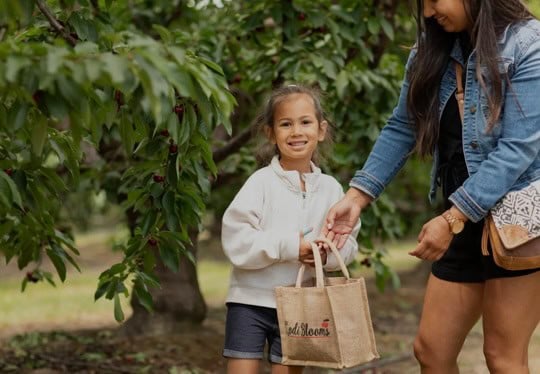
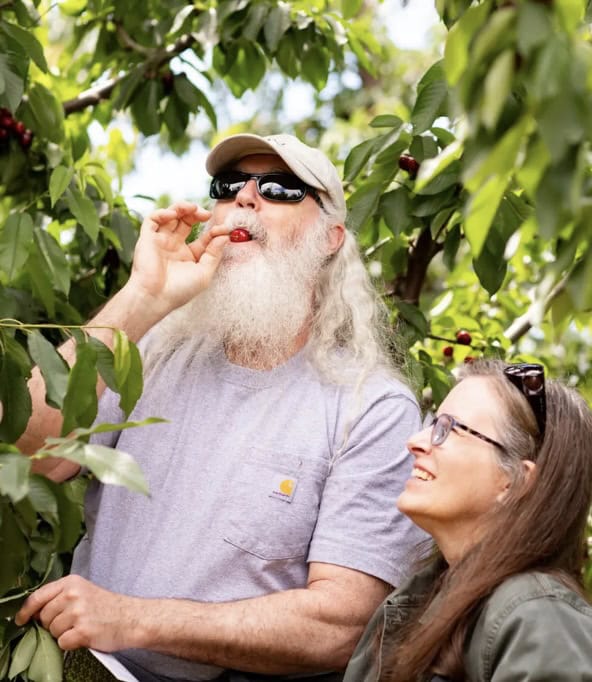
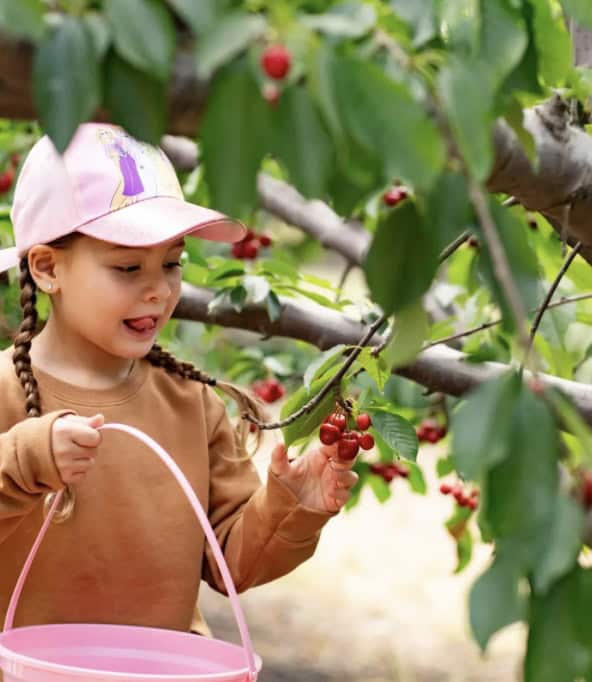
These community outreach events aren’t entirely altruistic. Engaging with the community fosters essential relationships. “It’s really important to make sure that consumers are connected with farmers because, ultimately, we can increase our profitability by working directly with consumers. It allows us to put that profit back into our operation to make it more sustainable year over year.
Sustainable farming is a learning process
Chinchiolo Farming Co. is passionate about education, partnering with experts from the Farm Bureau and University of California, Davis to keep themselves educated about the latest advances in sustainable agriculture. James explains, “Sustainability, in my opinion, is progressive. It’s doing one thing, seeing what the response is and making sure that we adapt over time. We are educated on new methods through a plethora of different platforms and people that give us an unbiased approach to farming as sustainably as possible. These include the California Association of Family Farmers, Farm Bureau independent advisors, UC Davis Cooperative Extension. We absolutely talk to other farmers on a regular basis. And then, quite frankly, there’s a ton of information online as well.”
Some people outside of agriculture might assume that sustainability is simply a buzzword or a trend. To James and many other California farmers, sustainable farming is the best way to ensure that the land will remain productive for future generations. James states, “I think, ultimately, sustainable farming is the only way to go. If we’re serious about handing these farms to the fifth, sixth, seventh generation, we cannot deplete the resources that are here. Whether it be the soil, the water or any other inputs that go into these operations.”
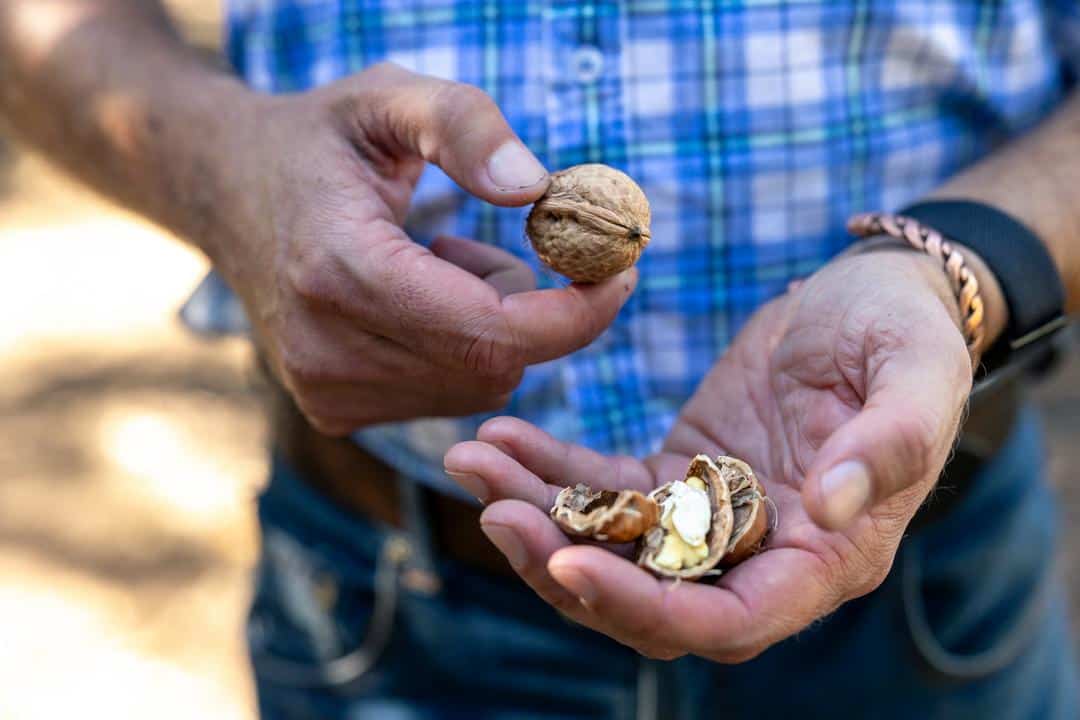
James understands that environmental, social and economic sustainability are truly symbiotic. Education and engagement with the community ideally lead to increased profit. That profit allows him to pay his employees a living wage, helps fund community outreach events, and covers the cost of making the farm more sustainable. Environmentally sustainable choices lead to healthier soils, families and communities. The three tenets can be implemented and achieved individually – but they’re so much more effective when they work together in concert.
See for yourself!
Want to learn more? Chinchiolo Farming Co. grows walnuts + cherries near Lodi. They recently partnered with their beekeeper to offer 17 different flavors of honey from locations throughout the state. To stay up-to-date on events and what’s happening on the farm or to shop online, keep on eye on their website and follow @chinchiolofarming on social.
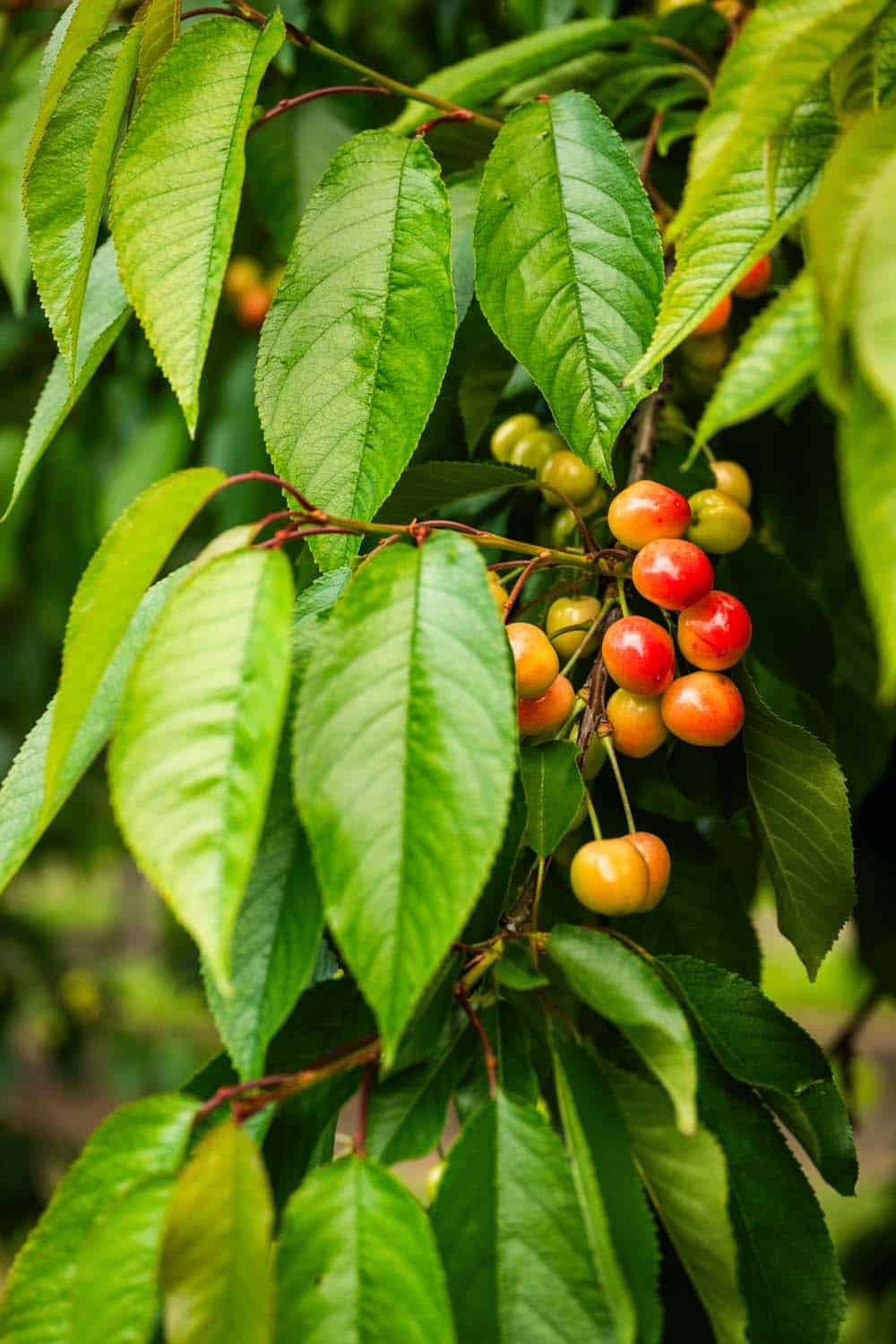
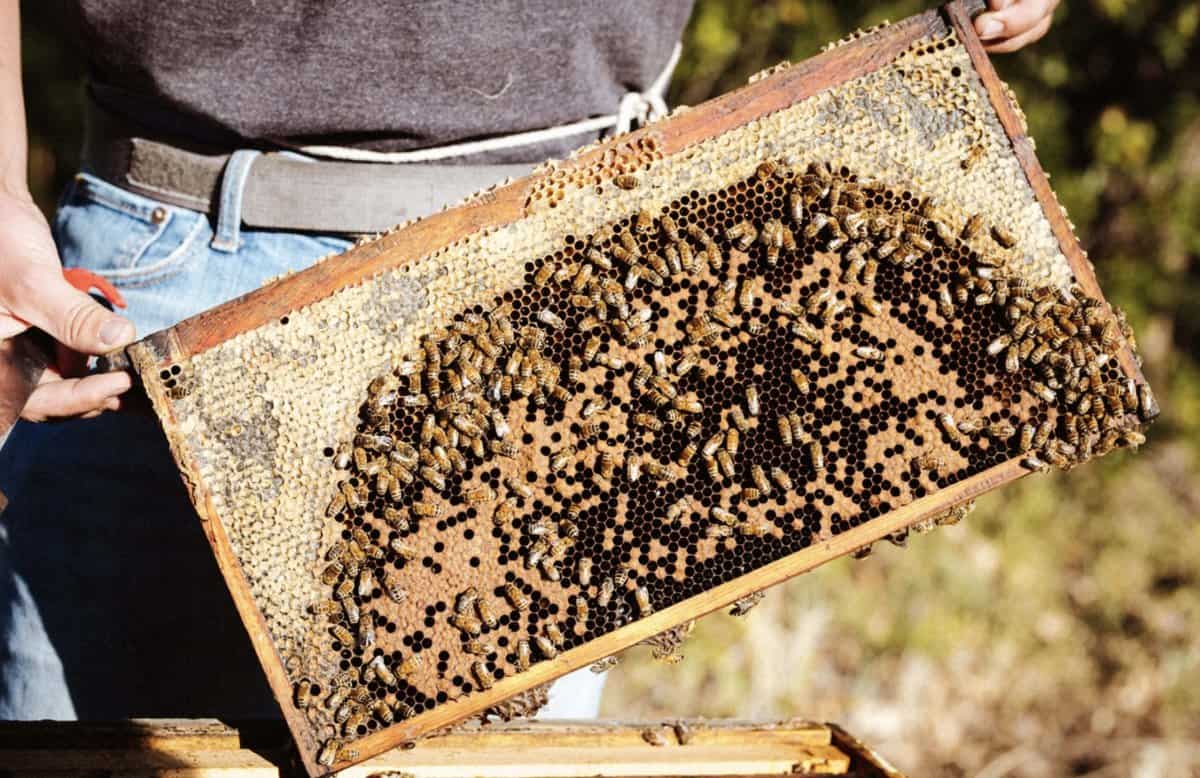
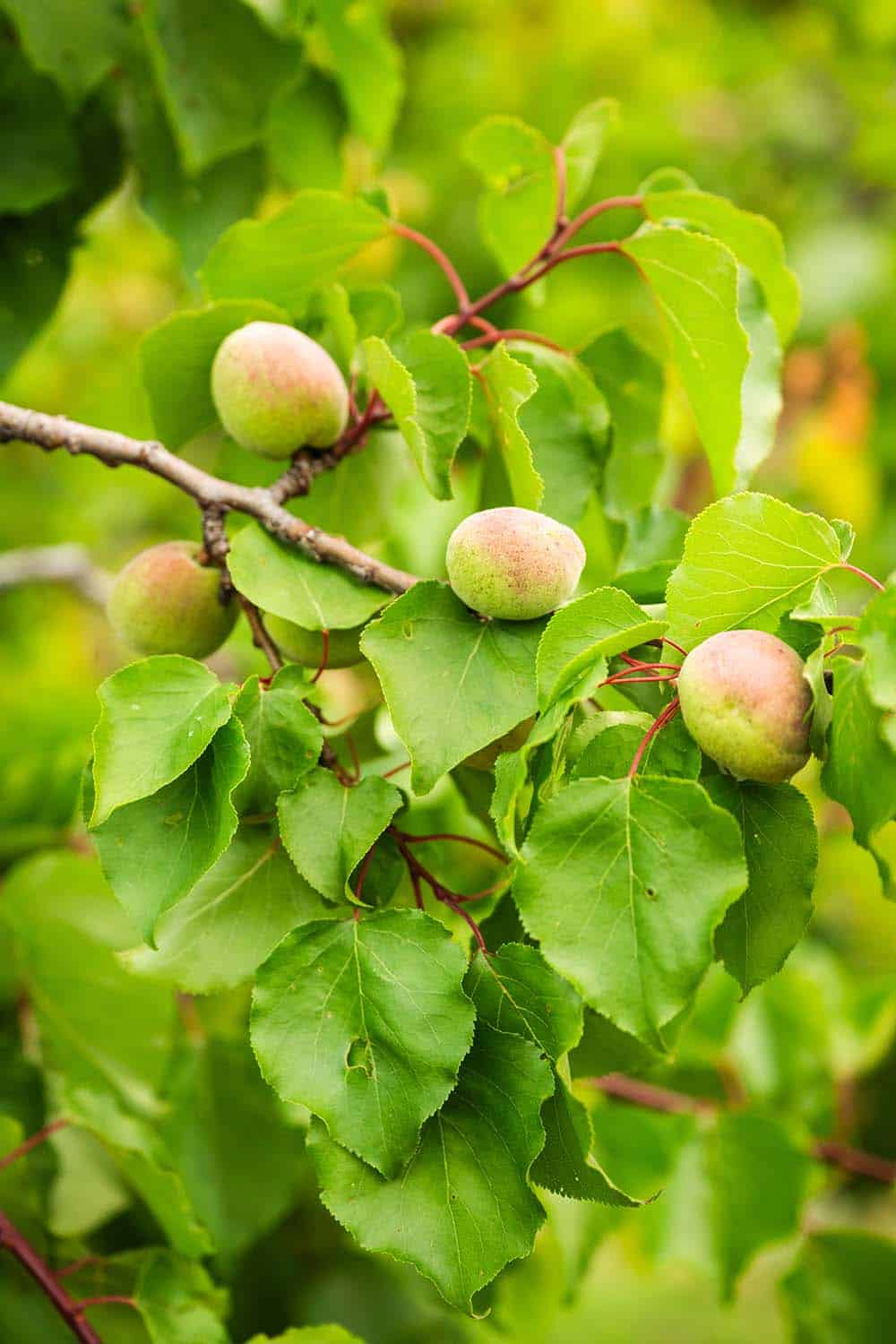
Want to go cherry picking in Lodi?
For a few weeks, starting in early May, Chinchiolo Farming Co. hosts Lodi Blooms, a u-pick cherry experience that also includes additional special opportunities like photo sessions in the orchard, sunrise cherry picking, and a curated farm-to-table dinner. These tend to sell out quickly. So, if you have your heart set, be sure to get on the waitlist for this spring!
Make it a weekend!
If you’re heading to Lodi for cherry picking at Chinchiolo Farming Co., why not make it a weekend? James shares a few of his favorite ways to spend a weekend in Lodi: “In Lodi, there’s an abundance of things to do! There are some really beautiful hotels and historic sites to visit. Downtown is really beautiful as well. There’s beer that’s brewed in town, oftentimes with local hops. There’s just this sense of old-school American in Lodi still.”
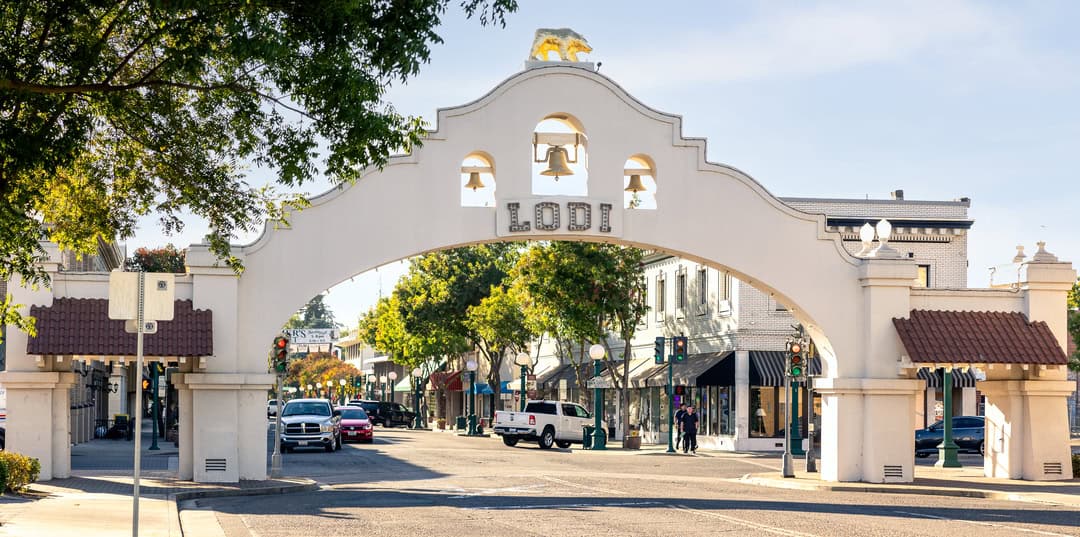
We have a few more ideas of what you should see (and taste!) in Lodi. Here are a few of our favorites.
Article by Hilary Rance. Photography by Hilary Rance, James Collier & select photos courtesy of Chinchiolo Farming Co.
